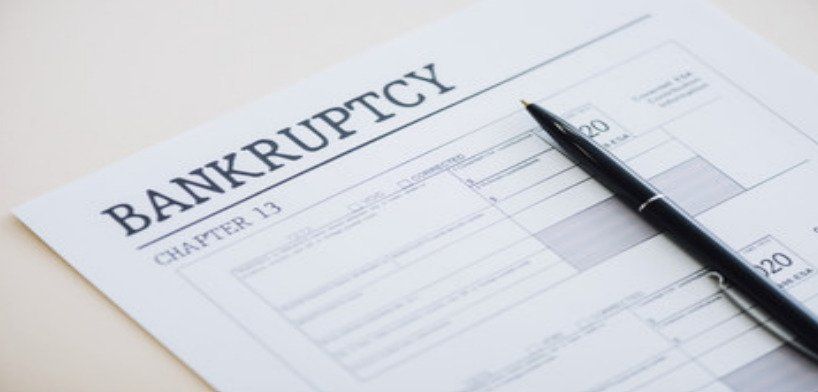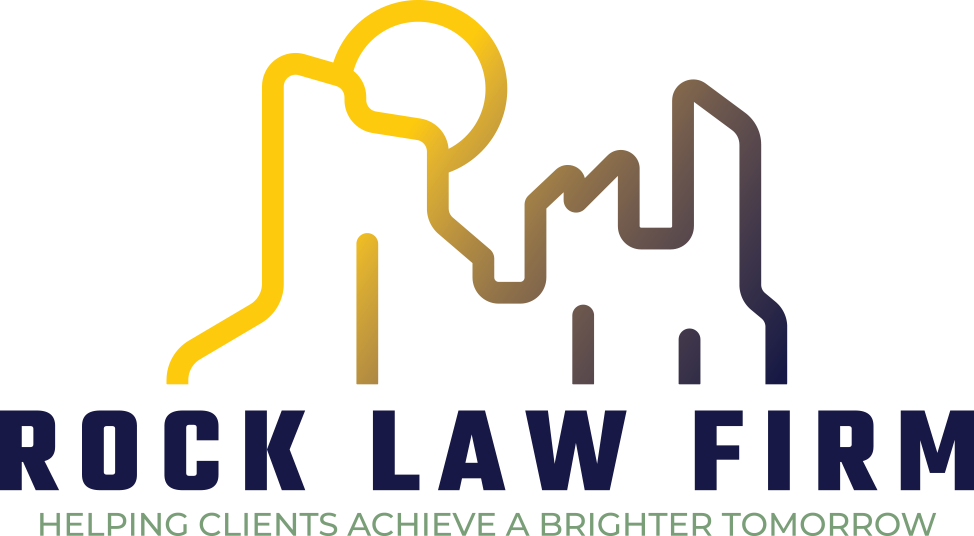
Most Common Misconceptions About Filing for Chapter 13 Bankruptcy
Rock Law Firm
Bankruptcy is often seen as a last resort for individuals facing financial difficulties. While it can be a powerful tool for debt relief and financial recovery, many misconceptions surround the process, especially when it comes to Chapter 13 bankruptcy. In this blog, we'll debunk some of the most common misconceptions about filing for Chapter 13 bankruptcy and provide clarity on what you can expect.
Understanding Chapter 13: Bankruptcy
Chapter 13 bankruptcy is a valuable tool that can provide individuals with a chance to reorganize their debts and regain control of their financial situation. Unlike Chapter 7 bankruptcy, which involves liquidating assets to repay creditors, Chapter 13 focuses on creating a manageable repayment plan over a period of three to five years. This allows debtors to retain their assets while working towards resolving their outstanding debts.
It's important to note that not all debts are treated equally in Chapter 13 bankruptcies. Priority debts, such as child support obligations or tax arrears, must be repaid in full through the repayment plan. On the other hand, unsecured debts like credit card debt or medical bills may only receive partial payment depending on the debtor's disposable income.
Personal, Financial, and Cost Requirements
When considering Chapter 13 bankruptcy as an option, it's crucial to understand the personal, financial, and cost requirements associated with this process. These requirements help determine eligibility and ensure that debtors can successfully navigate the bankruptcy process. Let's dive into each requirement individually.
Income Stability: Chapter 13 bankruptcy is designed for individuals with a steady source of income. This demonstrates their ability to make regular payments towards their repayment plan. The debtor must provide proof of income, such as pay stubs or tax returns, to support their filing.
Debt Limitations: There are both minimum and maximum debt thresholds for Chapter 13 eligibility. As of 2023, the maximum secured debt limit is $2,010,650, while the unsecured debt limit is $673,650. These limits are periodically adjusted to account for inflation.
Completing Credit Counseling: Before filing for Chapter 13 bankruptcy, debtors must undergo credit counseling from a court-approved agency within 180 days of their filing date. This counseling helps individuals explore alternatives to bankruptcy and gain a better understanding of their financial situation.
Filing and Administrative Costs: Filing for Chapter 13 bankruptcy requires payment of various fees and administrative costs. These costs include the filing fee, attorney fees (which can vary), credit counseling fees, and any additional fees required by the court during the process.
Commitment to Repayment: Under Chapter 13, debtors must demonstrate a genuine commitment to repaying their debts over the designated period, typically three to five years. It's essential to adhere to the agreed-upon repayment plan and make timely payments throughout the duration of the bankruptcy.
By meeting these personal, financial, and cost requirements, individuals can qualify for Chapter 13 bankruptcy and begin their journey toward financial stability. However, it's always recommended to consult with a knowledgeable bankruptcy attorney who can provide tailored guidance based on one's unique circumstances.
Misconceptions about Chapter 13 Bankruptcy
Chapter 13 bankruptcy can be a complex and misunderstood topic, leading to various misconceptions. Let's address some of these misunderstandings and provide clarity on the truth behind them.
Filing for Chapter 13 bankruptcy means losing all personal possessions. This is not true. Chapter 13 bankruptcy allows individuals to create a repayment plan to manage their debts while retaining their assets. Through this reorganization process, individuals can gain control over their financial situation without sacrificing their property.
Chapter 13 bankruptcy requires repaying all debt in full. While it's true that Chapter 13 involves establishing a repayment plan, the amount repaid depends on factors such as income, expenses, and the specific circumstances of the individual. The goal is to create an affordable repayment plan based on one's ability to pay while potentially reducing or eliminating some unsecured debt.
Filing for Chapter 13 bankruptcy ruins your credit forever. While there will be an initial impact on your credit score, the truth is that by consistently making payments through the court-approved plan, you can start rebuilding your credit over time. Responsible financial management and responsible borrowing habits can help improve your creditworthiness post-bankruptcy.
Many people believe that they won't be able to obtain any new credit after filing for Chapter 13 bankruptcy. While it's true that obtaining new credit immediately after filing may be challenging, that doesn't mean you'll never be able to access credit again. Over time, as you demonstrate financial responsibility and rebuild your credit history, lenders may provide opportunities for you to obtain new credit.
The Truth Around Process Length and Cost
When considering Chapter 13 bankruptcy, it's natural to have concerns about the duration of the process and its associated costs. Let's dispel some common misconceptions and provide a clearer understanding of the truth.
Many individuals believe that the Chapter 13 bankruptcy process is lengthy and unmanageable. While it's true that it involves a more extended time frame compared to Chapter 7, the duration varies depending on factors such as complexity and cooperation from all parties involved. In general, a Chapter 13 repayment plan lasts between three and five years. The length of your specific plan will depend on your income and the amount you owe.
Another misconception relates to the cost of filing for Chapter 13 bankruptcy. Some people assume that it is too expensive and out of reach for those in financial distress. However, the truth is that filing for Chapter 13 bankruptcy is more affordable than commonly believed. In most cases, attorney fees can be included in the repayment plan, alleviating the burden of paying upfront or needing significant funds to start the process.
Furthermore, keep in mind that filing for Chapter 13 bankruptcy can provide significant long-term financial relief by restructuring your debts into manageable payments. Considering the potential benefits and improved financial stability after completing the repayment plan, the cost becomes an investment in your future financial well-being. With a clearer understanding of these misconceptions surrounding Chapter 13 bankruptcy, let's now explore how to navigate through the process of filing for Chapter 13 bankruptcy.
The Process: Filing for Chapter 13 Bankruptcy
Filing for Chapter 13 bankruptcy can provide individuals with a manageable path to restructure their debts and regain control of their finances. However, the process involves several essential steps that must be followed correctly to achieve a successful outcome.
The first step is to consult with a knowledgeable bankruptcy attorney who specializes in Chapter 13 cases. They will assess your financial situation, review your debts, income, and assets, and determine whether Chapter 13 bankruptcy is the right option for you. It's crucial to have an experienced attorney by your side throughout the process to guide you and ensure that all legal requirements are met.
Once you decide to proceed with filing, your attorney will help you complete the necessary paperwork, which includes a petition, schedules listing your assets and liabilities, income and expense statements, and a proposed repayment plan. This plan details how you intend to repay creditors over a three- to five-year period.
After your attorney files the bankruptcy petition and supporting documents with the bankruptcy court, an automatic stay goes into effect. This stay immediately halts any collection actions by creditors, including foreclosure proceedings or wage garnishments. It offers much-needed relief from creditor harassment and provides an opportunity for you to work towards resolving your financial troubles peacefully.
A key requirement during Chapter 13 bankruptcy is attending a meeting of creditors, also known as the 341 meeting. This meeting allows creditors to ask questions about your proposed repayment plan and financial situation while under oath. Your attorney will prepare you for this meeting and accompany you to ensure everything proceeds smoothly.
Once approved, you'll begin making regular monthly payments according to the terms outlined in your repayment plan. These payments are made to a trustee appointed by the court, who then distributes the funds among your creditors. It's essential to prioritize these payments, since failing to comply with the plan can lead to the dismissal of your case.
Throughout the bankruptcy process, it's crucial to stay in close communication with your attorney. They will guide you through any challenges that arise and address any concerns or questions you may have. Remember, Chapter 13 bankruptcy is designed to provide a fresh start, but it requires commitment and adherence to the agreed-upon plan.
Impact of Chapter 13 Bankruptcy on Credit Score
The impact of Chapter 13 bankruptcy on credit scores is often a concern for individuals considering this debt relief option. While it's true that filing for bankruptcy will have an effect on your credit score, the long-term impact might not be as detrimental as commonly believed.
It's important to note that having significant amounts of debt, missed payments, collections, and defaults already negatively impacts your credit score. Initially, filing for Chapter 13 bankruptcy may cause a drop in your credit score. This is because bankruptcy is recorded on your credit report and remains visible for up to seven years from the date of filing. However, as you progress through the repayment plan and consistently make payments as agreed, lenders may view this as responsible financial behavior.
It's important to understand that everyone's credit situation is unique, and the impact of Chapter 13 bankruptcy can vary. While it may take some time to rebuild your credit score after bankruptcy, there are steps you can take to improve it gradually. These include responsibly managing new lines of credit, paying bills on time, and keeping debt levels low.
Ultimately, the decision to file for Chapter 13 bankruptcy should be based on your individual circumstances and financial goals. Remember, seeking the guidance of a reputable bankruptcy attorney can help you navigate through this process and minimize the lasting impact on your credit score.
Why choose Rock Law Firm for Chapter 13 bankruptcy?
At Rock Law Firm, we have a team of dedicated attorneys with years of experience in Chapter 13 bankruptcy. We're committed to helping you navigate the complexities of the process and achieve a fresh financial start. Our track record of successfully guiding clients through Chapter 13 bankruptcy speaks for itself. We're dedicated to helping you achieve a brighter financial future. Schedule a consultation today!
